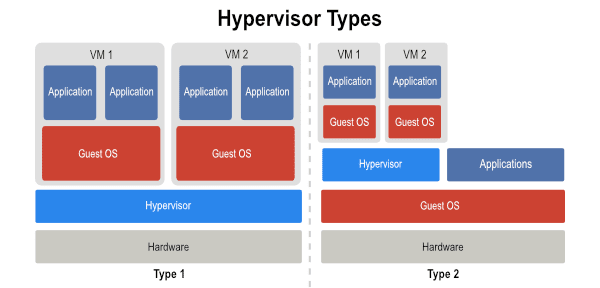
- #Vmware vs virtualbox vs docker full#
- #Vmware vs virtualbox vs docker portable#
- #Vmware vs virtualbox vs docker software#
Comparing the VM hypervisor vs container engine shows a downside to containers, however. These attributes make containers perfect for microservices and cloud applications that need to scale quickly or across multiple environments. This makes them portable, lightweight, and easily scalable.

VMs: Pros and ConsĬontainers have the advantage of running directly in a container engine instead of on a guest operating system managed by a hypervisor. To learn more about containers, read: What is a Container? Definition, Benefits, and Use Cases. Container engines, container types, and whether you’re developing on prem or in the cloud will affect your decision for a container provider, but a few examples include: Like VMs, there are many different providers and ways you can run containers.
#Vmware vs virtualbox vs docker portable#
In cloud computing, the key factor here for reducing cost is taking advantage of container technology by improving deployment density and making applications more lightweight and portable so multiple applications can run on a single VM, rather than utilizing multiple VMs. Many cloud providers depend on VM technology to provide users with their personal servers, so if you run containers in the cloud you’re most likely running containers on top of VMs that have been provisioned for you. VM cost in cloud computing, it’s important to recognize that you’re really comparing the cost of running containers on top of VMs to running VMs alone.
#Vmware vs virtualbox vs docker full#
Containers can launch and scale in a matter of seconds because they don't need their own full operating system. Containers run directly on the host operating system through a container engine and each container can have its own application files, binaries and libraries. With containers, you run your applications with their own separate resources without having to emulate an entire guest operating system.īoth containers and VMs make running multiple applications in production easier. This is similar to the way that a hypervisor creates resources for a virtual machine guest operating system, but with Linux cgroups you are able to divide resources directly within the Linux operating system, regardless of the presence of a hypervisor.

Linux containers are comprised of control groups (cgroups), which allow the Linux kernel to limit and isolate physical resources like CPU, memory, and network I/O to a group of processes. Today, when people talk about containers, they're usually referring to Linux containers. A small sample of these VM providers include: There are numerous providers that allow you to run VMs on prem or in the cloud.

The ability for VMs to divide up a single physical machine into different virtual entities enables industries to use hardware more efficiently while maintaining application isolation.

VMs also limit the negative impact of a vulnerability because they do not share operating systems and have their own allocated resources. This means that an application is not responsible for sharing its resources with other applications, it can use all of the resources available to it because the hypervisor gives each VM their own virtual hardware that is separate from other VMs on the same server. Each virtual machine behaves like an individual machine with distinct hardware and resources. A hypervisor manages these virtual machines by giving them a share of the resources (CPU, memory, disk, etc) of the host computer and its own operating system.
#Vmware vs virtualbox vs docker software#
The software responsible for emulating hardware for these guest operating systems is called a hypervisor. Virtual Machines are an abstraction of computer hardware that allow an operating system to emulate its hardware for use by one or many guest operating systems.


 0 kommentar(er)
0 kommentar(er)
